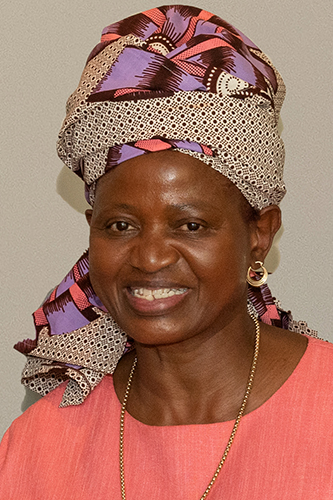
The Housing Consumer Protection Bill has been hailed as a panacea to the challenge of houses built on wetlands in Botshabelo in the Free State. This was the view of Mangaung residents during public hearings on the Bill, which form part of the Portfolio Committee on Human Settlements’ nationwide public participation process on the Bill.
For Ms Tony Madibogo from Freedom Square in Mangaung, a lifelong dream to own a decent home has turned into a nightmare. “They started building houses for us in 1996, during the Mandela presidency. Our houses started to disintegrate since then because the waterlogging. I lost my husband as a result of the undesirable conditions we were living in. I thank Parliament for hearing our cries, even if we were not protesting on the streets. We hope this law will help to ensure that houses are built on good soil,” Ms Madibogo said.
Ms Madibogo and many others supported the Bill as they hope that the Bill will make it clear where human settlements should be built. Similarly, there was consensus that requiring home builders to register with the National Home Builders Registration Council (NHBRC) will improve the quality of houses built. However, for this to happen the council must be accessible to all, particularly for small and medium construction companies in rural areas.
The Bill was also supported for its intention to provide training for emerging contractors, who build the majority of private homes in rural areas. Mr Thomas Ikgopotseng, a lifetime small contractor, said the proposed training will ensure that he has access to bigger contracts, which will help in the growth of small and medium enterprises in the construction industry.
“We want to benefit from the many contracts within our area and if we are trained and registered, we will be able to form cooperatives that will be subcontracted to build houses. Even if we share money, it will ensure that we are able to sustain ourselves and our families. We don’t want the current situation where contractors come from outside to develop houses in our areas, even when there are skilled and experienced people in the area,” Mr Ikgopotseng said.
Residents called for the Department of Labour’s role to be highlighted explicitly in the Bill to ensure that contractors do not subcontract to unregistered builders and undocumented migrants. In cases where labour inspectors find unregistered builders and undocumented migrants on sites, contractors must be fined.
The central role of inspectors is critical, residents said, in ensuring that building codes are complied with. There was a strong view that inspectors are absent from rural areas, which has a negative impact on building standards compliance. The Bill should be explicit in ensuring inspectors are coordinated at provincial and local level, as this will improve compliance residents said.
The composition of the NHBRC board, as contemplated in section 6 of the Bill, was another important area of concern for many residents. One view was that the board must be composed of qualified individuals with knowledge and experience primarily within the construction environment to ensure that it delivers on its mandate. A divergent view was that the Board must also consist of representatives of the traditional sphere of leadership, as it will have an impact on both rural and urban settlements.
The committee will now move to Gauteng for public hearings on the Bill.
Malatswa Molepo
16 May 2022

